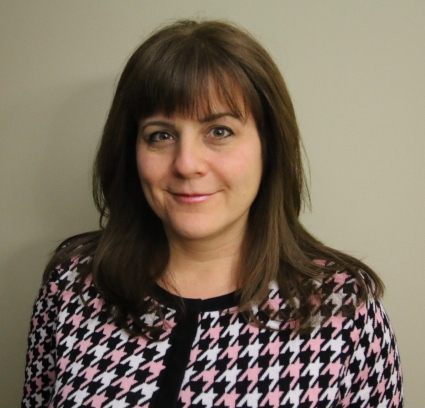- Home
- About Us
- The Team / Contact Us
- Books and Resources
- Privacy Policy
- Nonprofit Employer of Choice Award

 Introspection on your personal giving will inform your donor relations…
Introspection on your personal giving will inform your donor relations…
As nonprofit professionals we have access to an abundance of great resources that inform our work. How do you absorb, prioritize and adopt these insights into fundraising plans? Do you set aside time to review information? Is time scheduled in your calendar each week? Perhaps it is a daily discipline? Do you click and drag e-newsletters into a “plan” e-folder and revisit it each year?
As you consider the wealth of information around us, I would like to turn your attention to a goldmine of findings that will both affirm and challenge your approach with donors: The 2015 What Canadian Donors Want study. I suggest you review the findings as a donor first and fundraising professional second. This approach will personalize the donor perspective, bringing you back to your own motivations and preferences. Applications to your professional work will flow from this heightened empathy to the donor view.
The first step is gathering the information and setting aside time to reflect on it. Print or save this article, visit the AFP site and download the survey or read the full report here. Schedule a quiet hour to reflect on your own wants as a Canadian donor.
Think about your most heart-felt personal donation of the year or perhaps your lifetime, which may or not be for the charity you are presently working for. Work through the survey with your own experience in mind. Then stop and imagine how your donors receive the plans you put in place. You will no doubt emerge with many affirmations of the good work your charity is doing and several AHAs that will change your approach.
First, a little context on the study
The AFP Foundation for Philanthropy – Canada research committee contracted Ipsos to conduct research through online surveys in 2011, 2013 and 2015. The November 2015 AFP What Canadian Donors Want survey includes some of the important longitudinal questions from prior editions such as donor confidence, views on administration and preferred method of contact. The new 2015 survey also includes psychographic questions that help determine donor segments according to personality, values, opinions, attitudes, interests and lifestyles. Respondents were asked to indicate their level of agreement with statements to help identify their donor segment, such as some of the following examples:
As in the 2011 and 2013 surveys, the 2015 AFP What Canadian Donors Want survey includes a general population online, national sample. In addition, AFP has collaborated with CanadaHelps, an online donating and fundraising platform, to take the same survey questions to additional donors.
And now back to your quiet hour
This is your time to review the survey and think about how you would personally answer the questions, settling into the mindset of the donor. I have pulled out some findings that strike me, but the biggest benefits will come from your own time spent in reflection.
1. What were you hoping to accomplish when you gave that charitable gift?
The study shows that Canadians are more interested in having impact than being thanked. This reflects the growing sophistication of the Canadian donor base. An increasing number of donors say it is important that they receive information on how their donation has made a difference and fewer indicate needing some type of thanks.
Application: always include an impact statement in every communication (including thanks) that shows how the donation accomplished something great!
2. When you gave, did you have any doubt about what the charity was setting out to do? Were you confident they could do it?
Donors want to be clear on the charitable mandate and fulfillment. The study found that a clear mandate and success in fulfilling the mandate ranks over 95 % as the key to donor support. Over 95% percent! To get this right, is a huge step forward.
Application: consider a focus group or survey review with your key stakeholders to get their feedback on how your share you charitable mandate and fulfillment.
3. Have you ever been approached too much to donate by your favourite charity?
The study also revealed that over half of donors think they are approached too much for donations. This of course is not just by one charity, but certainly you want to be the charity to get this right for your donors!
Application: Ensure donor preferences are captured and respected. Integrate your donor contact plan to ensure contact with donors is well coordinated.
4. If you have the capacity to give more, what would compel you to do so?
Average gifts are increasing and the number of donors decreasing. The number one reason cited is that not all Canadians can afford to give.
Application: Explore areas to increase giving from existing donors. Assess major giving asks and direct mail giving arrays, looking for opportunities to thoughtfully increase the ask for donors with higher capacity.
5. Does your charity offer engagement opportunities that feel as if they are just for you?
Findings from the study show that there are six donor segments reflected. Which top two donor types would most closely reflect your personal giving?
Application:
Offer a robust mix of donor engagement opportunities in your fundraising plan to meet the motivations of different donors. This might include intergenerational family recognition for the pragmatists and a big party for the affiliative donor types.
I would love to hear about your applications for the 2015 What Canadian Donors Want findings by sending an email to me at lorelei.wilkinson@childrenswish.ca
Lorelei Wilkinson CFRE has worked as a professional fundraiser for 25 years at organizations such as Parkinson Society, The Lung Association and United Way of Greater Toronto. She is the National Senior Manager, Major Giving at The Children’s Wish Foundation of Canada and Chair, AFP Canada Research Committee.
Twitter @LoreleiWilk